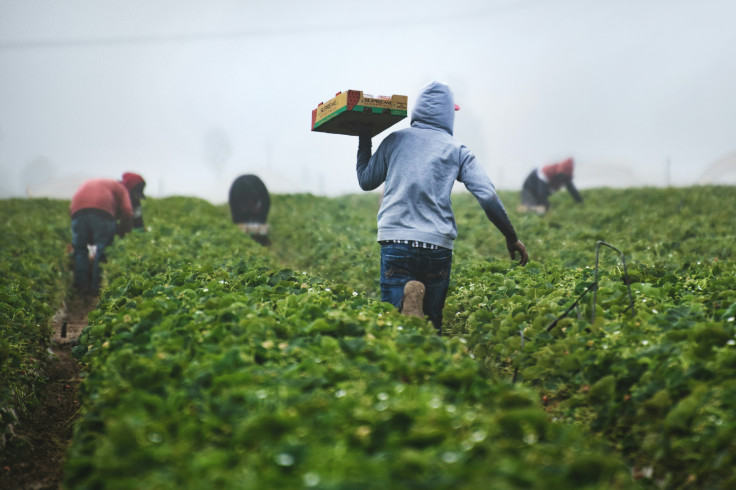Abhay Sarda Aims To Empower Farmers Through AI
Traive facilitates credit approvals by analyzing over 2,500 variables to assess farmers' credit risk in minutes

With the rise of artificial intelligence, new tools have emerged to help farmers monitor their fields and develop accurate assessments of their crop performance. However, many rural farmers face problems accessing these tools due to economic and infrastructural constraints. As such, they then fail to present financial institutions with precise information on their crop performance and risk assessment when requesting a line of credit.
Software engineer Abhay Sarda seeks to address these problems with Traive, an AI platform that helps agribusinesses reduce default risk by enabling faster and more reliable credit decisions. Under Abhay's guidance, Traive facilitates credit approvals by analyzing over 2,500 variables to assess farmers' credit risk in minutes.
Learn more about how Abhay Sarda's work with Traive is helping farmers manage their operations.
Core Agricultural Challenges

Many farmers and agribusinesses worldwide incorporate modern agricultural technology tools (like remote satellite imaging, automated vehicles, and crop sensors) to oversee their operations. However, this adoption isn't yet universal — particularly among rural farmers with smaller land.
Issues like high upfront installation costs and insufficient infrastructure impede this implementation for farmers with few resources. As such, over 60% of farmers worldwide continue to use outdated and inaccurate calculation methods — such as manual visual inspection and comparisons to historical cropping periods — to predict and assess their crop performance.
This inadequate access becomes a more pressing problem for farmers when it comes time for financial institutions to assess their credit risk. This is because all the available data is unreliable and poorly collected, with no indicators showing stability or future growth. As a result, only 12% of farmers can access credit from formal sources such as banks, with the rest relying on friends, family members, or independent lenders. This further limits their ability to invest in better equipment or tools to monitor their crops effectively.
Looking to address this problem, software engineer Abhay Sarda came up with possible solutions.
Abhay Sarda And His Journey with Traive

Having graduated with a degree in computer science from BITS Pilani and a master's in data science from Boston University, Abhay Sarda chose to forgo the traditional tech career path. Instead, he wanted to contribute to a company in its early infancy. So, he joined Traive, a startup focused on providing the agriculture supply chain with the financial tools and actionable insights required to connect credit and finance better.
Traive was initially based solely in Brazil, a country with a large agricultural sector accounting for 24% of its GDP. This location allowed Traive to address the problems of rural farmers who had historically been denied credit in favor of larger-scale operations.
Abhay and his team identified a lack of quality data as rural farmers' primary obstacle to accessing credit, and they set out to develop a solution that didn't require upfront investment or a significant infrastructure.
Traive's Strategy
To help collect essential information for credit assessment, Abhay works heavily with machine learning algorithms — advanced AI systems that retrieve large amounts of data and work with statistical models to provide insights and predictions. In cooperation with farmers, credit analysts simply need to input the location of fields and essential factors affecting crops — such as the different seed types, soil fertility, and irrigation methods — and Traive's built-in algorithm intakes this data, combines it with real-time and predicted weather conditions, and provides updates on potential crop yields across different timespans.
The platform also collects information such as farmers' credit history, local sustainability and regulatory compliance standards, the region's economic situation, and current market trends to generate an updated credit risk score. This helps analysts accurately calculate the amount of credit they can provide farmers and better present financial information to those who can fund it.
By following this data-driven approach, Traive allows farmers to present financial institutions with in-depth reports that show the stability of their fields and their ability to withstand potential periods of turmoil. This ultimately increases their chances of securing financial support to invest in high-technology tools and improve their operations.
Empowering Agribusiness with Traive
Thanks to Abhay Sarda's work, Traive became one of the country's top credit assessment tools, successfully helping assess over 10,000 credit requests amounting to 10 billion Brazilian reais (equivalent to around 1.8 billion USD). The platform also integrates with all existing enterprise resource planning (ERP) systems, allowing ag retailers, cooperatives, and input suppliers worldwide to integrate it into their operations seamlessly.
Check out Traive online to learn more about the benefits of its AI-driven credit assessment platform.
© Copyright IBTimes 2025. All rights reserved.




















